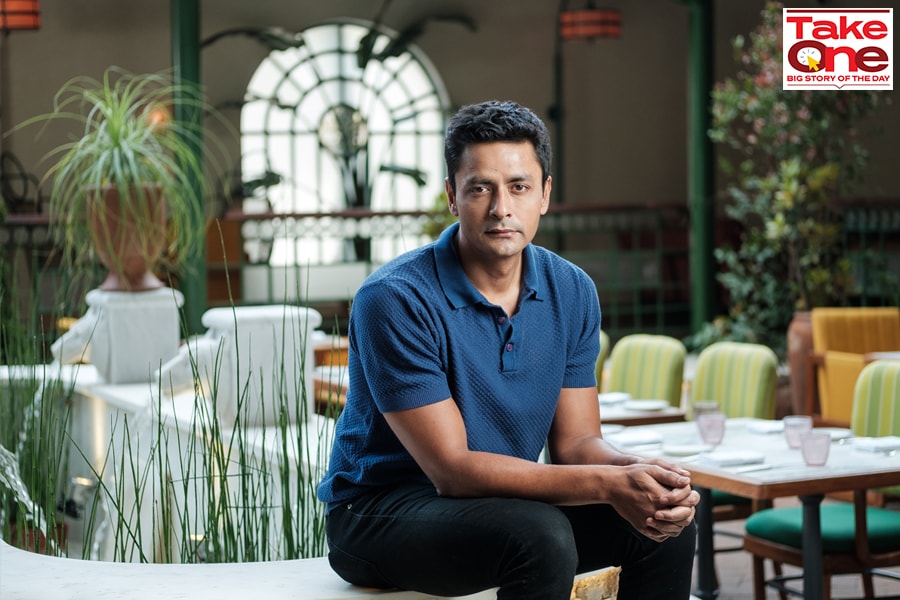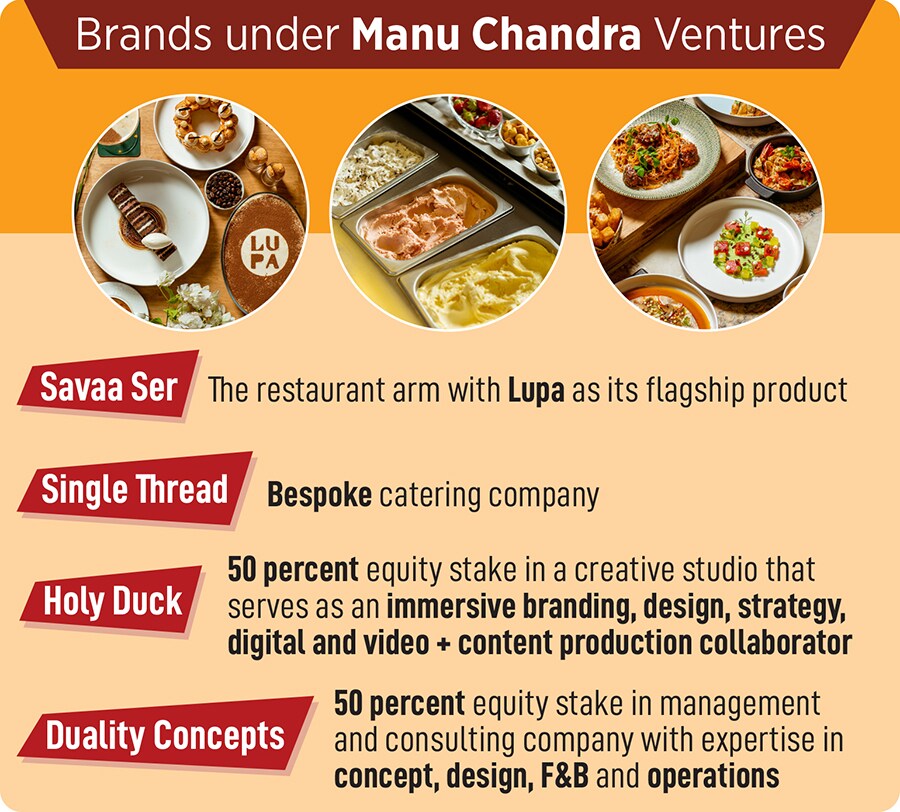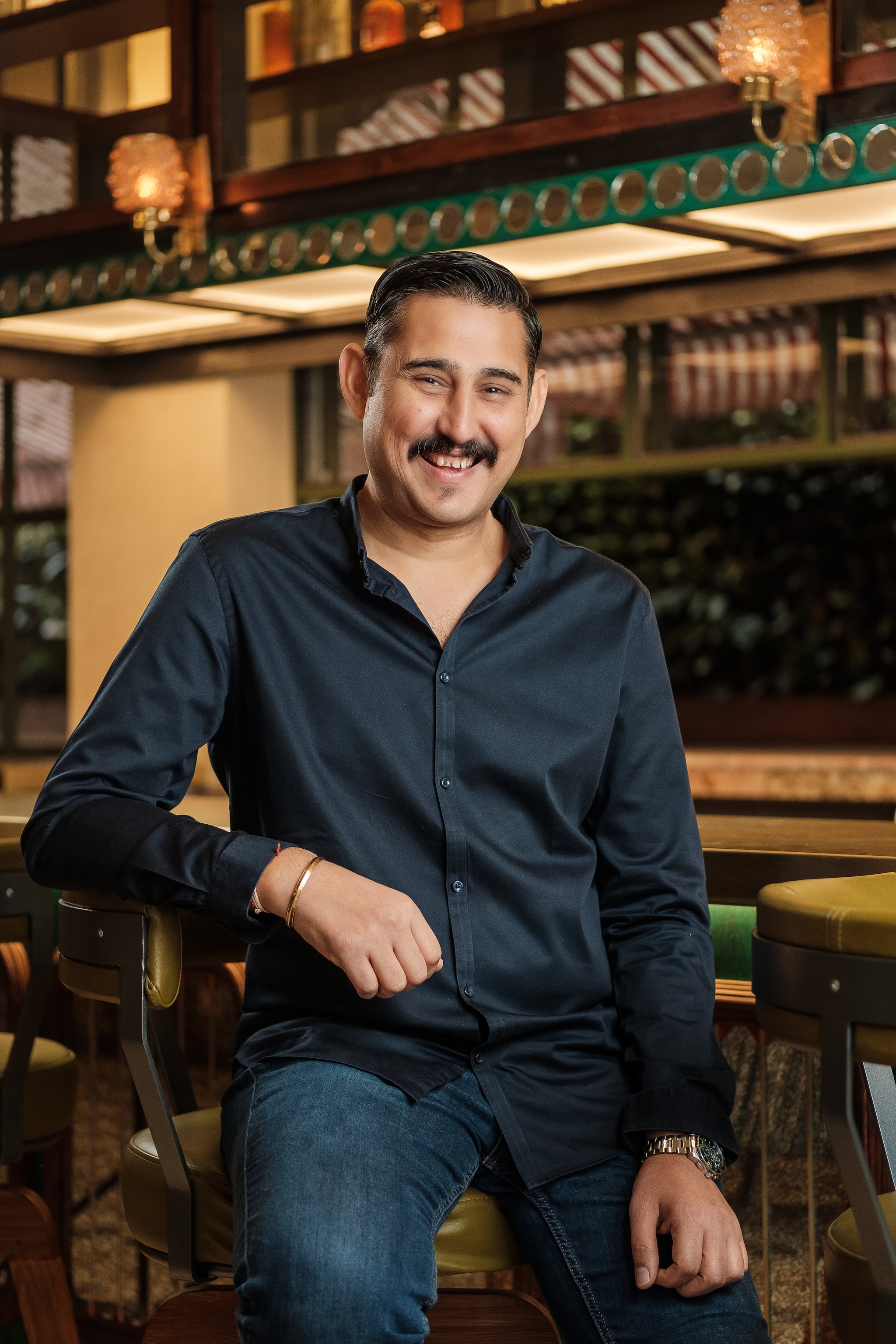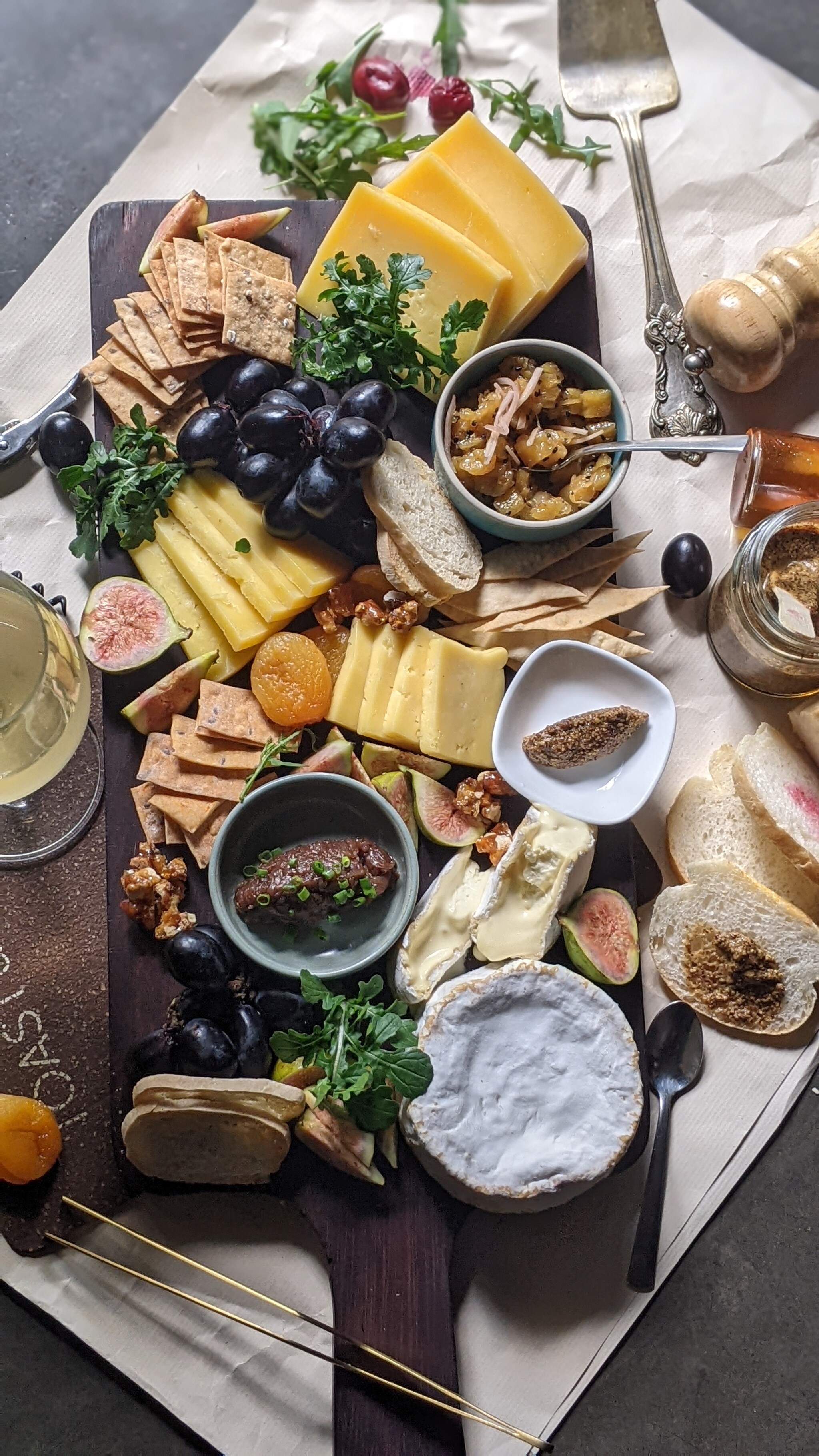
What's cooking with Manu Chandra?
In 2021, in the middle of Covid, the chef had left the Olive group, his workplace of 17 years, to start his own company. How is he looking to navigate the treacherous F&B ecosystem and build up a sustainable, multi-brand portfolio?
 Manu Chandra, founder, Manu Chandra Ventures, at Lupa, the flagship venture Image: Nishant Ratnakar for Forbes India
Manu Chandra, founder, Manu Chandra Ventures, at Lupa, the flagship venture Image: Nishant Ratnakar for Forbes India
One morning in January, Manu Chandra returned to Bengaluru post a “ridiculously long flight with a prolonged layover in Mumbai”, dropped his bags at home and set out for work almost immediately, where he spent the day to “clear up a bunch of pending stuff”. Once done, the chef-turned-entrepreneur headed straight to a premium event that was being serviced by his fledgling bespoke catering company, Single Thread, and jumped on to the line to fix a few items that weren’t perfect. “This, after I had just returned from five straight days of cooking at the World Economic Forum (WEF) in Davos. The two other chefs who had travelled with me had landed and passed out for the next eight hours due to exhaustion,” says Chandra, whom we meet the next morning at his 220-cover restaurant Lupa (meaning she-wolf in Italian) that, back then, was still receiving the finishing touches before launch. “My sister tells me I am crazy.”
Many would have concurred with her when Chandra, a chef-partner at the Olive Group, quit his workplace of 17 years in September 2021, to pile an entrepreneur’s hat above his toque. At a time the Covid-19 pandemic, which upended the F&B industry, was still far from over, Chandra launched Manu Chandra Ventures (MCV) along with Chetan Rampal, colleague, friend and fellow hospitality fiend. Single Thread was their maiden offering through which MCV landed marquee gigs like the WEF and the 2022 Cannes Film Festival and with top corporates like Spotify, serendipitously bringing it much-needed publicity and buzz. Lupa, the company’s flagship brand, opened its doors in February, inhabiting 11,000 square feet on Bengaluru’s arterial MG Road and housing, among other things, Tuscan-themed interiors, a marble fountain, a salumeria and a gelateria.
“The pandemic was a huge wake-up call and showed me the fragility of the hospitality sector. I wanted to do something a little more diverse and sustainable than just restaurants,” says Chandra. “Also, this was the last shot at doing something for myself. If I continued at perpetuity for another 10-15 years, I’d become too comfortable and risk averse.”
The holding company of MCV has in its ambit four verticals: Single Thread, its restaurant arm Savaa Ser, while it has made strategic investments into Holy Duck, a creative studio for branding collaborations, and Duality Concepts, a turnkey management and consulting company. The last two are expected to help Chandra build brands and their visibility in quick time, eliminating loops of back and forth. “One of the biggest pain points of setting up brands and rolling them out is that you get stuck with these, especially in this day and age when social media plays a big role. You need to be on top of activations and what you are putting out. With these companies, I have equity in the entire supply chain,” says Chandra of the companies in which MCV is a 50 percent equity shareholder.
The initial corpus to launch MCV with Single Thread and Lupa has totalled to somewhere between Rs10 crore and Rs15 crore, and have come from personal savings, soft loans from friends and family, and some debt. “I haven’t gone to any institutional investors or PE funds. MCV owns 100 percent equity in the company of which I own a majority stake,” says Chandra.













